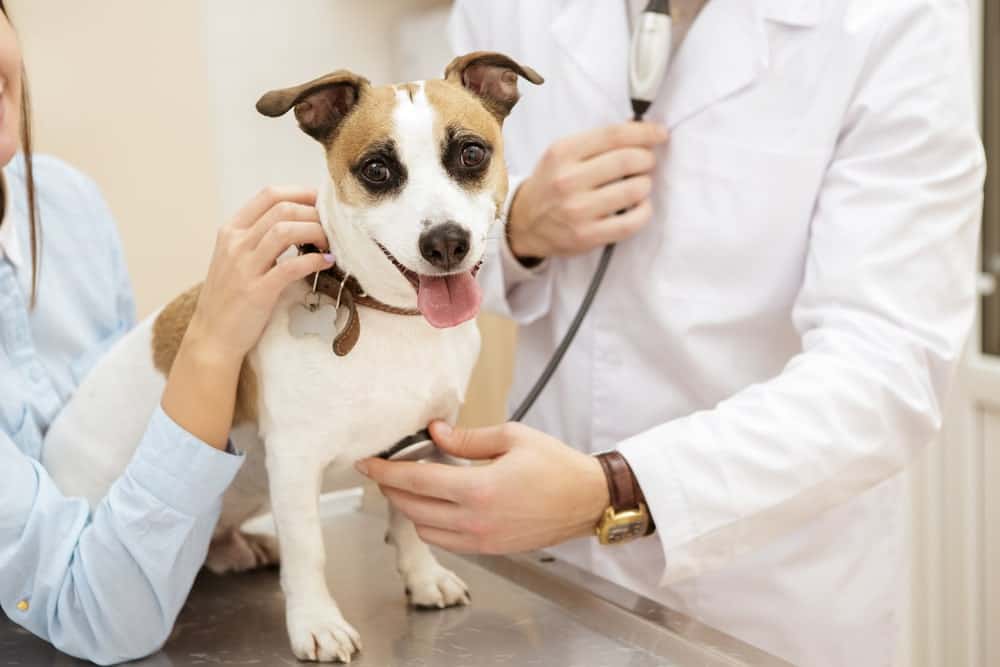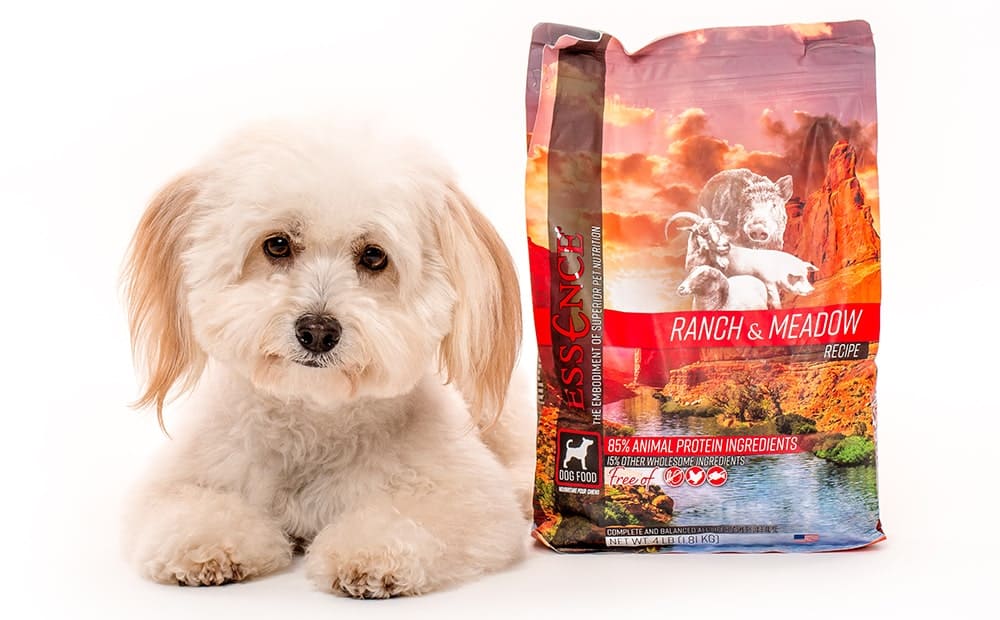“This post contains affiliate links, and I will be compensated if you make a purchase after clicking on my links.”
When you see a dog food bag or can at your local pet store, the first thing that may catch your eye is the beautiful packaging, but there’s more to dog food than that. Truthfully, there’s a lot of thought and years of research that goes into your dog’s food, and we understand the long-term benefits good dog food can bring to your dog’s life.
With that said, you may have heard about the importance of your dog intaking taurine and L-carnitine, but what exactly are taurine and L-carnitine, and how do they impact my dog’s health?

Learning more about taurine and L-carnitine
Taurine and L-carnitine make up two of the twenty amino acids that your dog needs to keep their bodies functioning properly. Taurine is needed to help your dog’s heart, eyes, brain, and other health systems to operate well. Because taurine is especially important when it comes to your dog’s heart muscles, some pet food brands have gone the extra mile to add additional taurine in their pet food lines. “Taurine supplementation (in dog food) may also be beneficial for the dog’s immune health,” said Dr. Bradley Quest, DVM. “L-carnitine is also commonly added to light or weight control diets as it can help mobilize fat for energy in the body.”
L-carnitine is another of the twenty amino acids that play an important role in your dog’s health. Dogs have the skill of being able to synthesize L- carnitine, and it can be very important for your dog’s heart health. L-carnitine transports fatty acids that are vital for cellular production of energy and removing toxic waste from those cells. L- carnitine is primarily in red meat, so when you’re evaluating a dog food brand, if you have a brand that utilizes meat followed by a meat-meal in their recipes, it will bring additional health benefits to your dog. It’s also a great way to know that your dog is getting enough taurine and L-carnitine.

“If your dog is eating a high-quality diet that meets the AAFCO recommendations for canine nutrition, it is likely your dog is getting plenty of these nutrients,” said Quest. “Since both of these nutrients are high in meat meals, it is a good idea to choose diets with meat and meat meals.”
A great example of a dog food brand that fully utilizes red meat and the benefits that come with it is Essence, specifically the Essence Ranch & Meadow recipe. The first four ingredients are boar, goat, lamb, and pork, which are all red meats. The meats in their recipes are also followed by a meat-meal.
The benefit of all Essence formulas containing more than one protein is your dog will be getting additional health benefits that come from multiple protein sources. It’s also free of grains, potatoes, and any other ingredient that doesn’t serve a natural, clean diet philosophy. The recipes are completed with such healthy ingredients as coconut flour, pumpkin, and chia seed oil.

Does a dog’s age factor into his intake of taurine and L-carnitine?
We all know that as a dog’s age, their health needs can increase. This may mean giving your dog additional supplements under the direction of your veterinarian for joint and skin issues or other health issues that may arise due to his age. With that said, do senior dogs need more taurine and L-carnitine? “If your dog is eating a high quality complete and balanced diet, they are likely getting adequate amounts of taurine and L-carnitine,” said Dr. Quest. “However, some dogs may not eat as much as they get older, so it is important to make sure your dog is eating the right amount of food for their body weight.”
It’s always best to talk with your veterinarian if you have any questions about if your dog is getting the benefits he needs for his individual health needs.




















MrBosski
Feb 10, 2020 at 3:39 pm
If you’re concerned, you can do a blood test and see what your dog’s taurine levels are like and, if they are low, discuss with a vet nutritionist what the best food or supplement would be for your dog. This whole taurine thing is a vet’s worst nightmare. People need to stop treating their dogs for something they may not have without performing any tests to help them determine if supplementation or diet change is necessary. Certain breeds are also more prone to dilated cardiomyopathy, which if you have a breed that has been shown to be prone, should consider testing your dog if you are concerned.
Joy
Feb 1, 2020 at 4:43 pm
I have read countless articles on health for dogs, most of which say some version of “your veterinarian can determine what supplements and how much might benefit your pet”. I’ve also seen many vets and searched incessantly for professional guidance for 10 years, for numerous issues my beloved dog has encountered. I have still not found a vet or other professional that can answer basic questions like “could my dog be deficient in___?”, much less someone who considers or understands nutrition or possible deficiencies without me pressing (usually a LOT) and doing tons of reading to know what to ask about.
This leads me to believe either none of the writers are vets or have ever even asked their own vet, or this is purely some legal disclaimer. I’ve sadly come to believe that vets are not taught any nutrition, and most rely on pushing commercial pet food (which we’re told is ‘complete’) to fulfill any and all nutritional needs.
Many times, the aggressive resistance I’ve encountered has made me quite fearful of admitting I feed homemade diet and vitamins. Of course I understand a good vet would caution against just some random ‘healthy’ diet, which could actually be dangerous. However, I’ve researched and always tried to make sure her food provides all necessary nutrients. It seems like vets don’t know, don’t really care to learn, so they get defensive and say I must buy processed foods.
I’ve added several supplements over the years as well, but without expertise or trustworthy guidance, I’m always weary about dose and possible problems. Even fish oil, which I think many owners give without a thought, can upset the balance of other nutrients.
Other than the well known veterinary directories, how can I find a qualified professional who has (or is willing to get) the level of information to properly and safely help me know what might work? I am convinced I already know much more in this area than any vet I’ve seen, even those who claim to be ‘holistic’. I’ve spent an unbelievable amount of time and money going to vets who claim expertise in nutrition, complementary medicine, etc, who could not discuss the most basic aspects of how vitamins or common supplements like taurine are used in the body. I read conflicting information online, and there is almost no guideline on dosages for any supplement, other than what a manufacturer discloses on nutrition labels.
I know my best friend is suffering more than she has to, simply because I can’t find the information or help. Please help me with any suggestions before it’s too late.